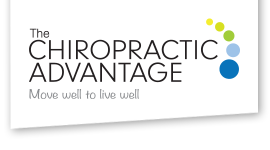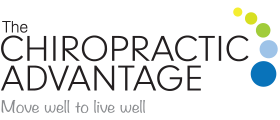Immediate Postpartum Considerations To Consider Before Birth in Appleton WI
Immediate Postpartum Considerations To Consider Before Birth in Appleton WI

New mamas in Appleton WI have enough to think about in those early, early postpartum days. Between sleep deprivation, figuring out how to best feed baby, trying to calculate pees and poops and feeding times or amounts, monitoring her own healing, and more sleep deprivation, thinking about anything else is 1) a little impossible, and 2) just plain exhausting.
Hopefully you are reading this in the weeks or months before the arrival of your newborn when you're in hyper-planning mode (nesting anyone?). Here are a few simple, but quite important, immediate postpartum considerations to consider before you bring that adorably demanding precious bundle home.
Priorities for new moms in Appleton WI include:
Skin-to-skin bonding with baby
Benefits:
- Calms both mom and baby through releasing of hormones that relieve baby's stress, lower body temperature, lower heart rate, and stabilize blood sugar; promotes mom's healing and lowers risk for postpartum mood disorder.
- Makes baby healthier: strengthens immune system, promotes brain development through heightening senses, promotes weight gain, provides baby with healthy bacteria.
- Improves effectiveness of breastfeeding: helps colostrum flow more easily, helps mom breastfeed longer by establishing strong milk supply and connection with baby.
How To: as often as possible, strip baby down to diaper, remove your upper garments entirely (or last least get down to your bra if you're worried about leaking), and allow your little one to rest on your belly and chest. Spend some time (if you don't fall asleep!) talking to, cooing at, or singing to him/her.
If you're nursing, allow your baby to "hunt" for your nipple using his/her primitive reflexes. This will help promote development of senses and the rooting reflex needed to successfully nurse.
(Note for nursing mamas: if you have any concerns at all about baby latching, not gaining weight, or pain with nursing, please reach out to a lactation consultant. She can be a miracle worker in troubleshooting strategies to help you two with this journey. Use the resources you have available to you!)
Hydration
There never will be a more important time to stay hydrated than the immediately postpartum period! Not only does hydration accelerate healing, but even the slightest bit of dehydration can lead to headaches, fatigue, muscle soreness, constipation, and more - new mama's ain't got time for that! It becomes even more crucial for the mama who is nursing… breastmilk is 90% water, so keeping that well full is a big deal!
Tips to stay hydrated:
- Add electrolytes to your drinks. This will replenish your system with micronutrients that are often lost through nursing and sweating (those night-sweats are b-r-u-t-a-l, am I right?)
- Drink coffee in moderation. I know, I know. Coffee should've been at the top of this priority list. But - it can slightly dehydrate us and a small amount can be passed to baby through breastmilk, which can cause sleep issues for both of you. One to two cups should be fine, but maybe try half-decaf for a little more wiggle room in quantity? Are we still friends ? 🙂
- Lactation teas. If you are worried about your supply or are wanting to build a stash of breastmilk, some moms swear by lactation teas. While there is no pure evidence that states, yes, lactation teas work, there are ingredients that are anecdotally believed to help boost supply. Look for fenugreek, blessed thistle, and/or goat's rue. And remember that herbal supplements are typically not approved by the FDA, so do your research and ask your pediatrician if you have concerns about what you're drinking.
- Coconut water. Ahhh, the most natural form of electrolytes out there. Just stick a straw in the coconut and you're good to go. Or - like those of us who don't live in the tropics must do - grab a bottle of 100% coconut juice and enjoy all of the ultra-hydrating benefits, like a generous supply of daily sodium, manganese, fiber, calcium, vitamin C, and riboflavin. It's also shown effective for relieving edema and constipation. What new mama doesn't need that?
- Shoot for 130oz per day. I know - that seems like a lot. But what else is there to do when you're feeding your baby for the eighty-ninth hundred time? Drink, mama, drink. Then pee, mama, pee.
Nutrition
Tell a mom with a new baby to eat "well-balanced, healthy meals" and she will either give you the death glare or respond with, "you cook for me, then." The last thing she wants to do is sit over a stove or, chop and saute vegetables, or clean a bunch of dishes. But what a postpartum woman eats is important. Giving the body with a steady supply of carbohydrates, protein, and fat will help heal from the inside out, regulate blood sugar, provide steady energy, and keep a nursing mom's supply adequate for both mom and baby's needs.
So if you have a couple weeks or months left before your due date, go ahead and make some (or a ton) of freezer meals (think: casseroles, breakfast bakes, breakfast sandwiches or burritos, freezer-friendly protein bars, crockpot meals, etc.). You will thank your super-nesting self later!
Tips for adequate nutrition:
- Make snacks as accessible as possible. Keep easy-to-grab foods at your fingertips so you can consistently supply your body with energy. Items like fruit, yogurt, nuts, and protein bars can be stored right next to your feeding station so you can eat when baby eats.
- Think about well-balanced foods. Foods that contain a solid dose of carbs, fats, and proteins are the perfect foods for a postpartum mama to be eating. Toast with peanut butter and banana, a sandwich with avocado and deli meat, a bowl of meat with rice and veggies are all options that will give your body a healthy dose of nutrients.
- High fiber for anti-constipation. We're going to talk about avoiding constipation a lot. It's just that important! Eating foods that are naturally high in fiber is just another tool in our non-constipation toolbox. Think oatmeal, full fruits, flax seed (add to oatmeal or smoothies), and veggies. You can even add a stool softener in those earliest of days to help things move along well. And remember - lots and lots of water.
- Full fat foods. Dietary fat is a beautiful, beautiful thing. It nourishes us with sooo many wonderful nutrients. Don't shy away from avocado, natural peanut butter, flax seed, olive oil, whole eggs, full fat dairy products, or fatty fish.
- Pearl of wisdom: the postpartum period is not the time when you should be starting a diet or cutting out major food groups. Our bodies go through an incredible amount of stress and trauma and food is a healer among many. The way we nourish our bodies plays a role in how our hormones work on regulating themselves and how the healing process plays out. The kindest thing you can do is to not stress your mind or body further with food rules and restrictions - allow and embrace this period of healing, rest, restoration, and bonding with your sweet baby.
Total body rest and relaxation
Did you know that in Eastern cultures, a woman spends the first four to twelve weeks of the postpartum period in bed with her new baby? Bond, feed, rest, heal, repeat. Her village of friends and family do the rest of the adulting: cleaning, cooking, caring for other children, etc. We in the Western world could learn a thing or two about how to treat a postpartum mom, can I get an "amen"?
Unfortunately, the majority of us don't have that luxury. We have a lot of responsibilities and too often, we are made to feel ashamed if we are unable to keep up with everything that "must" be done. I'm looking at you, spotless house, delicious meals, made-up hair and face, adorable photos, pre-baby jeans. Even if you don't get caught up in the Instagram version of what a postpartum mom "should" do and be, it's never a bad idea to revisit the importance of total rest and relaxation.
Tips for total body rest and relaxation:
- Stay horizontal as often as you are able to. This means laying in bed, relaxing on the couch, reclined in a chair, or even laying on the floor. Doing so has shown to slow postpartum bleeding and reduce risk for pelvic floor injury by limiting how much pressure is down on the uterus and pelvic floor muscles simply from reducing the effects of gravity.
- Shoot for a 1-3 activity-to-rest ratio. For every one hour that you are doing an activity (showering, making food, doing laundry, etc), try to rest for three times that. Or for every half hour, try to rest for 90 minutes. This can be a healthy, mindful approach to rest that gives the body a chance to rest and heal without a steady stream of up/down, active/inactive. And for goodness sake, try to sleep during the rest time!
- Prioritize (ahem, demand) self-care. Thirty (or eighty) minutes of uninterrupted time to yourself - and you get to choose how you spend it with no questions asked - is an essential piece of the postpartum experience. Use this time to sleep, read, take a bath, meditate, just sit in silence… entirely up to you.
Red Flags in the Postpartum Period
Contact your doctor immediately if you are experiencing any of these symptoms
- Heavy bleeding that is getting worse. If you are soaking a pad every hour or are noticing large clots, let your doctor know.
- A red, warm, or swollen limb that is tender. This could be a sign of a blood clot and should be treated immediately.
- A bad headache that doesn't get better after medication. Or a bad headache with blurry vision.
- A fever of 100.4 degrees or higher. Or any other sign of an infection, such as flu-like symptoms, chills, body aches, etc.
- An incision that is draining or bleeding. For mama's with a cesearan, be sure to check the incision site daily and don't hesitate to ask if you aren't sure if it is healing well.
- Shortness of breath or pain with breathing. This could be a sign of a blood clot in your lungs, which needs attention right away.
- Thoughts of harming yourself or your baby. Postpartum depression and anxiety are common and should never cause shame. In order to protect you and your baby, your doctor needs to know about harmful thoughts you may be having and can help you work through the hormonal changes.
A little planning can go a long way. Ask for help from your partner, friends, or coworkers for any and everything you might need in those earliest of early days. People are generally more than happy to help - especially when there's an opportunity to hold a newborn for a hot minute! Approach the immediate postpartum period with some curiosity (I wonder how this experience will be), a checked ego (I can't do it all by myself, asking for help is my self-care), and an empowered spirit (I'm one freaking bad ass mom, I can do anything). Cuz it's all true.




